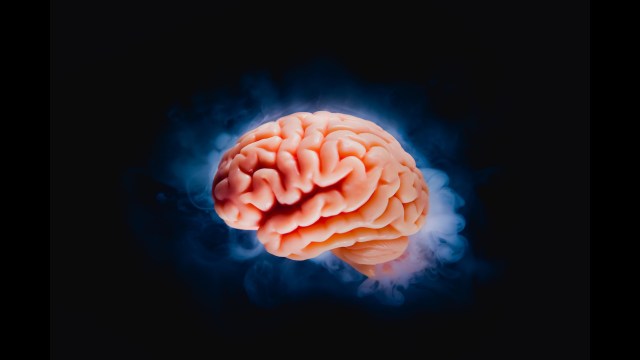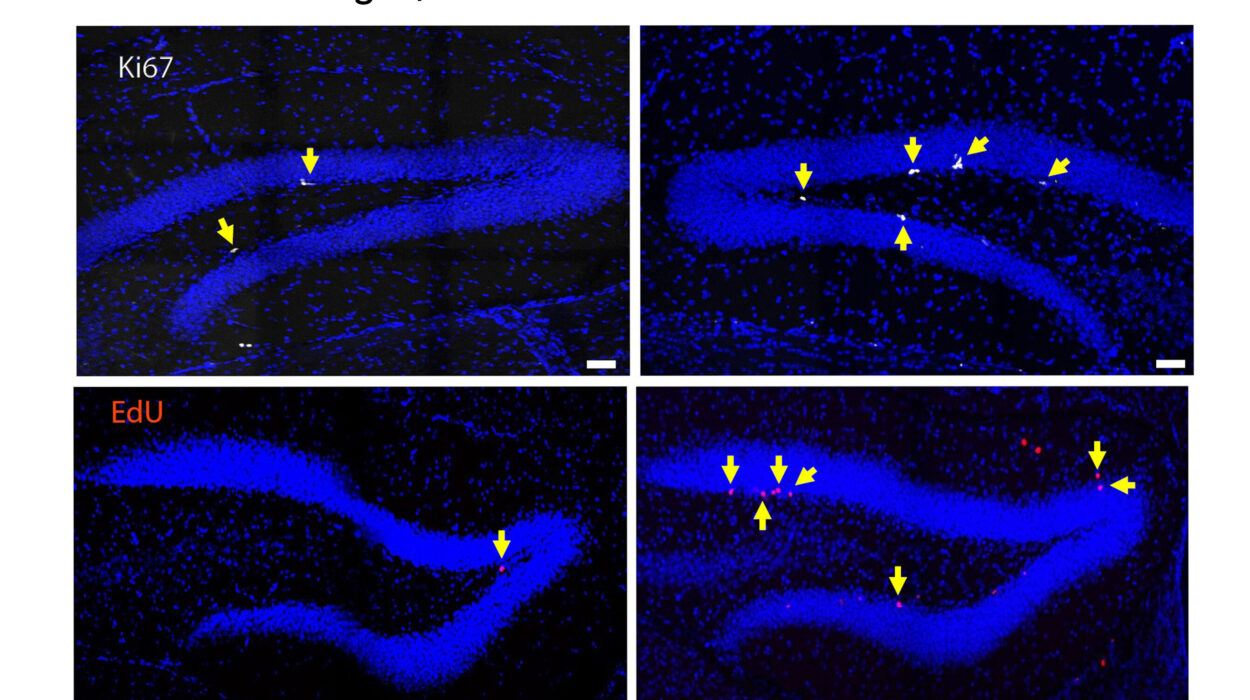Imagine if treating depression or schizophrenia could one day involve the immune system as much as the brain. For decades, scientists and doctors have approached mental health as a problem confined largely to the brain—an intricate tangle of neurotransmitters, synapses, and circuitry. But a bold new study led by researchers at the University of Bristol is helping reshape that notion, drawing powerful connections between immune system activity and some of the most prevalent and devastating neuropsychiatric disorders.
Published in the prestigious journal Molecular Psychiatry, this research could be a watershed moment in mental health science. It not only strengthens the idea that the immune system plays a key role in the development of conditions like depression, schizophrenia, Alzheimer’s disease, and bipolar disorder—it also opens the door to entirely new therapeutic strategies, ones that go beyond simply tweaking serotonin and dopamine levels.
This is the story of how inflammation and immune signaling—once considered peripheral to mental illness—may actually lie at its heart.
Mental Health: A Global Crisis Searching for Deeper Answers
Mental health conditions are among the most pressing public health challenges of the 21st century. According to the World Health Organization, roughly one in four people will experience a mental or neurological disorder during their lifetime. Conditions like depression and schizophrenia are often long-lasting, deeply distressing, and frequently disabling. They don’t just affect mood or cognition—they disrupt relationships, education, careers, and physical health.
And yet, despite decades of research, the biological underpinnings of many of these disorders remain mysterious. The dominant theories have long revolved around chemical imbalances in the brain—particularly involving monoamine neurotransmitters like serotonin, norepinephrine, and dopamine. This framework has shaped generations of antidepressant and antipsychotic drugs.
But there’s a problem: these drugs don’t work for everyone.
In fact, up to one-third of people with depression or schizophrenia do not respond to conventional medications that target neurotransmitters. This failure has led researchers to ask deeper questions. What if the origin of these conditions lies not only within the brain’s architecture but also within the body’s systemic processes?
The Immune System Enters the Scene
Enter Dr. Christina Dardani and Professor Golam Khandaker, leading a team from Bristol’s MRC Integrative Epidemiology Unit. Their new study represents a shift from the traditional brain-centric view of mental illness, proposing that the body’s immune system—specifically, how it responds to infection and injury—may play a causative role in neuropsychiatric disorders.
Their weapon of choice was Mendelian randomization, a sophisticated computational method that leverages genetic data to determine whether one factor (in this case, levels of immune-related proteins) can be said to cause another (such as the risk of developing depression or schizophrenia).
Unlike observational studies, which can only identify correlations, Mendelian randomization can cut through the noise of confounding variables. It’s a kind of natural experiment, using genetic variants as proxies to simulate randomized trials—except these experiments are conducted on datasets involving hundreds of thousands of people.
The team looked at an astonishing 735 immune response-related proteins, all measurable in human blood. These included cytokines, chemokines, and other key messengers of immune activity. The researchers then assessed how these proteins were related to seven major neuropsychiatric conditions: depression, anxiety, schizophrenia, bipolar disorder, Alzheimer’s disease, autism, and ADHD.
Twenty-Nine Proteins That Could Reshape Psychiatry
The results were startling.
The study found that 29 immune-related proteins showed evidence of a causal role in one or more of the seven conditions. This doesn’t mean they are the only factors involved, but it strongly suggests they are part of the biological chain leading to illness. These proteins aren’t just random players—they’re involved in signaling pathways that regulate inflammation, cellular stress responses, and communication between the immune system and the nervous system.
Even more compelling: 20 of these 29 proteins are already targets of drugs approved for other diseases. This means we may not need to start from scratch to develop new treatments for mental health conditions. Instead, existing medications—originally designed for autoimmune diseases, cancers, or infections—might be “repurposed” for psychiatric use, pending rigorous clinical trials.
One example is interleukin-6 (IL-6), a protein long known for its role in inflammation. Elevated IL-6 levels have been found in people with depression and schizophrenia, and drugs that block IL-6—currently used for diseases like rheumatoid arthritis—might hold promise for mental health applications.
Rethinking Depression and Schizophrenia: More Than Brain Disorders
Perhaps the most profound implication of this research is philosophical as well as scientific. It challenges the long-standing Cartesian dualism that has separated the mind from the body for centuries.
“Our study demonstrates that inflammation in the brain and the body might influence the risk of mental health conditions,” said Professor Golam Khandaker. “The findings challenge the centuries-old Cartesian dichotomy between the body and the mind and suggest that we should consider depression and schizophrenia as conditions affecting the whole person.”
This is not just a semantic shift—it’s a call for a paradigm change in psychiatry.
If mental health disorders involve systemic immune dysfunction, then future treatments could include anti-inflammatory therapies, immunomodulators, or even lifestyle interventions that regulate immune function—like diet, exercise, or stress reduction. It also means that biomarkers in the blood, not just in brain scans or psychological assessments, could help predict risk or tailor treatments.
From Inflammation to Emotion: How Might It Work?
But how exactly does the immune system affect the brain and behavior?
The answer lies in a field called neuroimmunology, which explores the dynamic cross-talk between immune cells and neurons. When the immune system becomes overactive—due to infection, chronic stress, or autoimmune dysfunction—it releases molecules like cytokines into the bloodstream. Some of these molecules can cross the blood-brain barrier, a protective shield around the brain, and alter neuronal function.
Inflammatory cytokines have been shown to reduce the production of serotonin, impair neuroplasticity, and disturb the delicate balance of excitatory and inhibitory signals in the brain. They can also activate microglia—the brain’s resident immune cells—which, when overactive, can damage synapses and neurons.
In animal studies, inflammation has been linked to social withdrawal, anhedonia (the inability to feel pleasure), cognitive impairments, and anxiety—all hallmark symptoms of depression and other disorders.
In humans, elevated markers of inflammation are consistently associated with worse outcomes in depression and schizophrenia, and patients with high levels of these markers tend to respond poorly to traditional antidepressants.
Toward the Clinic: What Comes Next
While the findings are groundbreaking, they are just the beginning of a new chapter in psychiatric research. The Bristol team emphasizes the need for multidimensional follow-up studies to validate and expand on these results.
The next steps include:
- Analyzing large-scale health records to see whether people with certain immune profiles are more likely to develop specific psychiatric disorders.
- Animal studies to trace the molecular pathways from immune activation to behavioral symptoms.
- Clinical trials that test whether modulating the immune system can improve outcomes in people with mental health conditions.
Already, small pilot studies have hinted at the potential of anti-inflammatory drugs—such as NSAIDs, statins, or monoclonal antibodies—in alleviating symptoms in some patients with depression or psychosis. But much more research is needed before these can become standard treatments.
A New Era in Mental Health Science
The significance of this study is difficult to overstate. It offers a glimpse of a future where psychiatry is more integrated, precise, and personalized—where doctors no longer treat the brain in isolation but consider the entire organism.
Imagine a future psychiatric clinic where blood tests help tailor treatments based on a patient’s immune profile. Where a diagnosis of depression might lead to a prescription not just for a serotonin reuptake inhibitor, but for a targeted immunotherapy. Where prevention strategies focus as much on reducing chronic inflammation as on managing stress or trauma.
This vision may still be years away, but the groundwork is being laid now by studies like the one from the University of Bristol.
Final Thoughts: Healing the Whole Person
Mental illness has too often been treated as an invisible affliction, shrouded in mystery and stigma. But as science continues to unravel the biological threads of the human mind, that picture is changing. We are beginning to see mental health not as an abstract dysfunction, but as a condition deeply rooted in our biology—shaped by genetics, immunity, environment, and experience.
By recognizing that the body and brain are not separate battlegrounds, but one interconnected system, we take a crucial step toward more compassionate and effective care. The immune system, once thought to play only a background role in mental health, may in fact be one of its central players.
And with this realization comes a powerful hope: that healing the mind may one day begin by understanding—and treating—the body.
Reference: Christina Dardani et al, Immunological drivers and potential novel drug targets for major psychiatric, neurodevelopmental, and neurodegenerative conditions, Molecular Psychiatry (2025). DOI: 10.1038/s41380-025-03032-x






